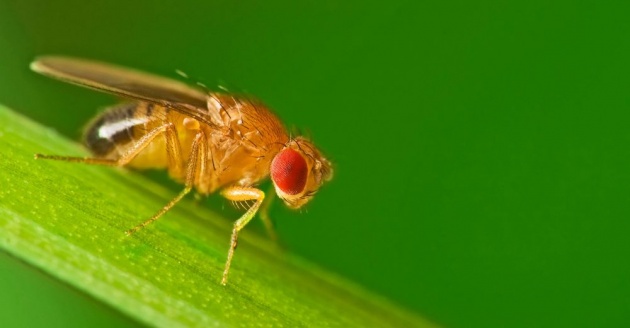
Researchers attempting to understand the inner workings of human emotion have made an interesting discovery: when threatened, fruit flies display a complex, fear-like response.
In a new study, researchers simulated overhead visual threats meant to mimic a possible predator; they passed a dark paddle over the flies' habitat and tracked the flies' response with advanced software.
As the paddle passed over the flies, the flies would consciously avoid the ersatz predator. During subsequent passes, the flies' reaction would progressively intensify, which indicates that the response was more than a simple reflex.
"For us, that's a big step beyond just casually intuiting that a fly fleeing a visual threat must be 'afraid,' based on our anthropomorphic assumptions. It suggests that the flies' response to the threat is richer and more complicated than a robotic-like avoidance reflex," said study author David Anderson.
Although there are closer relatives to humans than fruit flies, Anderson and his team studied the insects because of their comparatively simple neurological system.
The research is published in the latest edition of the journal Current Biology.



